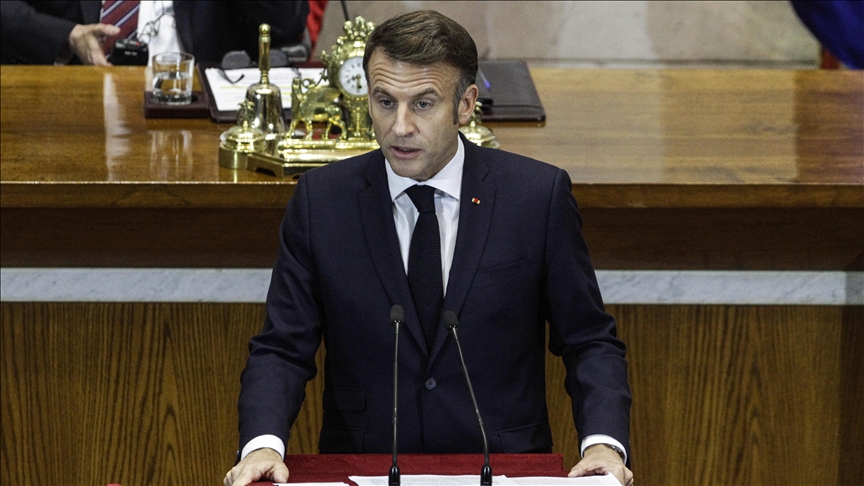

By Anadolu Agency
ANKARA
French President Emmanuel Macron on Thursday accepted the resignation of Prime Minister Michel Barnier, a day after opposition lawmakers toppled his government, the presidency said.
Barnier, who had only been in office for three months, went to the Elysee Palace and submitted his resignation during a meeting with Macron.
Barnier lost the trust of the National Assembly, or lower chamber of the French parliament on Wednesday, after the majority of lawmakers voted for a no-confidence motion. It came two days after he used his discretionary powers to pass the much-debated social security budget bill without voting in parliament.
Barnier and the members of his government will ensure their duties until the nomination of a new government, the presidential statement added.
Macron’s quest to find new premier
Following Barnier’s resignation, several names echoed in Parisian corridors, with Macron reportedly seekingto appoint a new premier within 24 hours.
Defense Minister Sebastien Lecornu has denied rumors that he could be the next premier, telling RTL broadcaster that he is a “candidate to nothing.”
Francois Bayrou, mayor of the southwestern town of Pau and former presidential candidate, is another politician mentioned. He is a centrist and a close ally of Macron and is expected to meet the president later in the day.
Segolene Royal, a socialist, former minister, and ex-presidential candidate saidon X just hours after Barnier was removed through a no-confidence motion that she is “available” to fill the vacancy.
Meanwhile, left-wing lawmaker Mathilde Panot, parliament group chief of her party France Unbowed (LFI), told LCI that her party would automatically reject the new prime minister through no-confidence if Macron did not nominate a new premier from the left alliance New Popular Front (NFP) ranks.
Macron will make a live address to the nation on Thursday evening.
According to an unnamed former minister who spoke to BFMTV, Macron hopes to have a new government in place by the time US President-elect Donald Trump pays a visit to Paris on Saturday for the re-opening of the Notre Dame cathedral. It added that this was a matter of credibility for the French leader.
The 850-year-old building, which sustained significant damage in a 2019 fire, is set to reopen following extensive renovations.
This will be Trump’s first international trip since being reelected in November.
Political instability haunts since June
The country has been in political upheaval since June when Macron’s centrist bloc failed and the far-right National Rally (RN) won the European Parliament elections.
***In response, Macron called for two rounds of snap parliamentary elections on June 30 and July 7, but no party won 289 seats, a threshold to achieve an absolute majority in the National Assembly.
The NFP won the most votes and seats in parliament in the second round and later insisted that the prime minister must be from the alliance, but failed to nominate a consensus candidate for the position immediately.
After weeks of internal divisions, the NFP nominated Lucie Castets for prime minister on July 23.
However, President Macron rejected a left-wing candidate and said he would not appoint a premier until mid-August after the Paris Olympics.
He faced criticism for delaying the process, fueling further instability after he accepted then-Premier Gabriel Attal’s resignation on July 16 after initially rejecting it on July 8.
On Sept. 5, Macron finally appointed Barnier, a center-right politician, former European commissioner, and former foreign minister, as the prime minister.
Barnier’s government was the first one to collapse with a no-confidence vote since 1962.
We use cookies on our website to give you a better experience, improve performance, and for analytics. For more information, please see our Cookie Policy By clicking “Accept” you agree to our use of cookies.
Read More